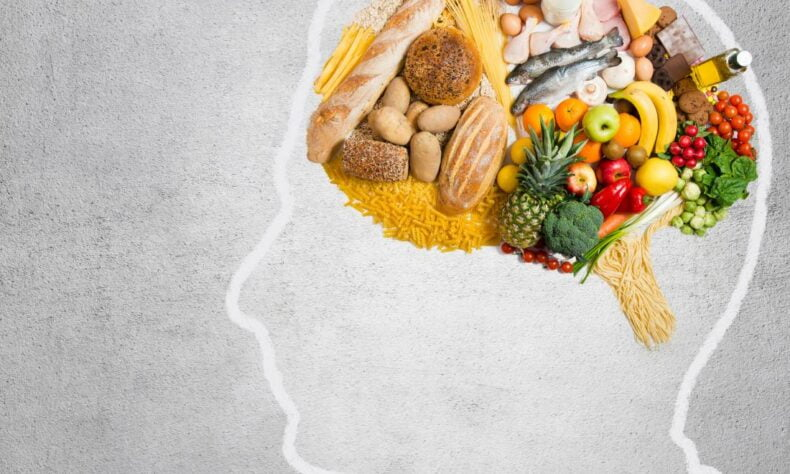
Our brain is of critical importance to our Mental Health. It controls the great flow of information needed to maintain balance. These things include understanding pain levels, managing blood pressure, regulating neurological response, secreting hormones, and helping the body operate by coordinating all of the body’s many messages.
We’re taught that healthy food helps us to look and feel our best from a young age. These are some of the best foods for your good mental health.
Fatty Fish
Fish consumption is higher in tropical countries, and it has been shown that depression is less frequent in these places. The discovery that fish oils might potentially cure and prevent depression prompted experts to conclude that this is true.
Fish oils rich in omega-3 fatty acids have a significant influence on our brain’s well-being. Inflammation and fluidity of cell membranes are necessary for the transmission between neurons to work and be successful.
Coffee on Mental Health
Coffee is frequently regarded as the most effective mood-elevator due to its high antioxidant level. Using it can help you pick a fight with depression while also keeping you relaxed and peaceful.
Coffee does more than simply support cardiovascular and liver health; it also helps you recall knowledge much more effectively. Coffee drinkers who drink coffee following their routines have strong memories, which aids in their ability to deal with their routines more efficiently. According to scientific studies, coffee offers cognitive benefits for people of all ages. Regardless of whether you are a student who must concentrate on your studies or a business professional who has the ambition to accomplish numerous goals; coffee is excellent for retaining information.
Blue Berry
It’s well known that blueberries are healthy for us. Antioxidants included in them assist to keep our bodies healthy and away from disease and aging-related health concerns. Although it’s generally accepted as an effective brain booster and memory enhancer, the fruit has also acquired a reputation for being an elite brain food that improves cognitive function and memory even in old age.
Turmeric
While the current research shows that the bioactive curcumin molecule found in turmeric is connected to enhanced brain health and memory retention, previous studies have shown a relationship between the bioactive curcumin compound in turmeric and improved brain health and memory retention.
A notable property of curcumin is that it possesses numerous cognitive advantages, but there is one of the most fascinating aspects of curcumin consumption — it is useful in the treatment of depression.
Chocolates
Chocolate is universally loved. For as long as we can remember, our favorite sweet pleasure has been chocolate. Chocolate is mankind’s best creation. When it comes to presents, nothing says love better than chocolates. One of the most popular flavorings and treats around the globe is chocolate. This chocolaty flavor is unmatched by any other flavor. Cake, cookie, biscuit, pudding, mousse, brownie, ice cream, candy, and beverage items are commonly made with baking powder.
The strong, rich flavor of dark chocolate is due to anandamide, which is a chemical component in cannabis. It lowers stress hormone levels. The brain chemical serotonin is crucial for having a good mood and feeling happy.
6. Green Tea
Caffeine is one of the primary components of green tea. Adenosine, a chemical messenger in the brain, which tells the brain whether you should be sleeping or awake, is reduced by caffeine. People need caffeine to stay alert and cognitively sharp because blocking adenosine prevents sleepiness.
Studies have shown that L-theanine can reduce stress and enhance mood by helping you relax. Caffeine has been shown to boost cognitive performance by supporting memory and attention while decreasing anxiety.
Yogurt
A study of research concludes that people with anxiety might improve their symptoms by eating more yogurt or improving their diet.
Individuals who have anxiety symptoms, such as feeling worried, restless, or tense, may benefit from probiotic and non-probiotic diets and supplement strategies to help manage their gut microbes. One of the finest sources of probiotics – beneficial bacteria are known as probiotics that help balance the intestinal bacterial population.
Researchers have discovered that the billions of microbes found in the stomach, collectively referred to as the gut microbiota, contribute to overall health by way of the “gut-brain axis.”
Whole Grains
While whole grains naturally contain tryptophan, the amino acid your body requires to generate serotonin and melatonin, many of these grains are lacking. Serotonin, known as the “feel-good hormone,” increases feelings of well-being and lowers stress, while melatonin plays a critical role in sustaining normal sleep cycles.
Foods rich in tryptophan have been shown to aid in the prevention of depression, as well as the regulation of the amount of sleep needed to enhance mental well-being and health.
Avocados on Mental Health
In addition to this, avocados are monounsaturated fat, which helps lower blood pressure and boost blood flow, both of which can help to protect against cognitive loss. Additionally, monounsaturated fats can help combat insulin resistance and prevent type 2 diabetes, both of which are significant risk factors for Alzheimer’s disease.
Because of their high folate content, avocados are believed to help reduce the creation of brain tangles associated with Alzheimer’s disease. Potassium is abundant in avocados, and when coupled with the other nutrients, oleic acid, and omega-3s, can help blood pressure and protect the brain.
10. Olive oil on Mental Health
For those who care about brain and heart health, olive oil is the most well-known cooking oil because of both of these concerns. Firstly, olive oil is loaded with polyunsaturated and monounsaturated fatty acids, which have been related to a lower risk of cognitive decline. Keep these considerations in mind if you’re using olive oil in your diet.
Conclusion
To maintain your loved ones’ brain health, send them a Get Well Soon Card or you can also use the Sympathy Cards full of your emotions or suggest the best course of action to eat the appropriate nutrients. This society’s over-dependence on processed foods has the greatest impact on the country’s overall health. While food with a lot of wheat and sugar in it is best for stimulating appetite, nutrient-rich foods such as fruits and vegetables teach the brain to not desire more of these types of foods.






